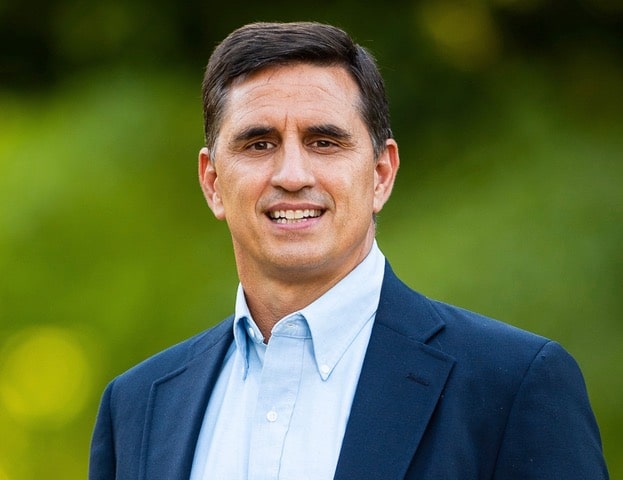The Beauty of Brokenness
 One of the disturbing trends I see among pastors and ministry leaders alike is an acceptance of a certain level of porn consumption by them or their staff – as long as they are confessing. I recently had a leader tell me that many of the pastors in his association admit to regularly looking at porn. But at least they were confessing, as if that was enough. I have also seen this as a standard practice in many accountability groups. It often goes something like this,
One of the disturbing trends I see among pastors and ministry leaders alike is an acceptance of a certain level of porn consumption by them or their staff – as long as they are confessing. I recently had a leader tell me that many of the pastors in his association admit to regularly looking at porn. But at least they were confessing, as if that was enough. I have also seen this as a standard practice in many accountability groups. It often goes something like this,
“How did it go this week on the purity front? ‘Not great, I struggled a couple of times.’
“Yeah—me too. Let’s pray we do better this week.”
Typically, this cycle continues with no real change. This is not God’s design. It’s time to understand our identity and look to Jesus’ wisdom when he says in Matthew 5, “Blessed are those who mourn, for they shall be comforted.”
Do you want to know how to quit porn? If so, it’s time to learn how to mourn and, in doing so, learn how we can truly confess and repent – leaving our porn habits behind and taking hold of the freedom Jesus offers.
Deep Anguish
When Jesus used the word ‘mourn’ in the Sermon on the Mount, he used the strongest version of grief. It is the same word used to describe how we grieve the loss of a loved one. Why would He do that? I believe it’s because Jesus wanted us to understand that this is not a casual sorrow but a deep anguish. When we are poor in spirit, we mourn over our sin, resulting in brokenness.
Those who mourn feel the weight of their sin and bravely face the devastation of deep sorrow. This is part of the process of becoming more like Christ. It’s not easy, but it is necessary to find true freedom. Only when we are broken over our sin are we willing to live in reality instead of in denial. Confession is not repentance.
Worldly Sorrow versus Godly Sorrow
There is a distinction between worldly and godly sorrow, and we must not deceive ourselves about which category we are in. Look how the Scriptures give wisdom to this in 2 Corinthians 7:10:

“Godly sorrow brings repentance that leads to salvation and leaves no regret, but worldly sorrow brings death.”
When it comes to porn and sexual sin, we can be sad that we get caught or not like the feelings of shame and guilt but secretly love the pleasure it brings. This reveals that we only have worldly sorrow.
A worldly sorrow brings death because it is deceptive. A worldly sorrow feels like mourning, but it is not what Jesus describes in Matthew 5.
Worldly sorrow is a partial confession that avoids true repentance, while godly sorrow is a full confession that leads to repentance.
Worldly sorrow leads to managing our sin so it doesn’t get too out of control. Godly sorrow leads to putting sin to death.
Worldly sorrow involves taking half hearted steps toward freedom. One example of this is the guy who puts on blockers and has accountability but still hasn’t locked up his phone and still has access to porn if he really wants it. Godly sorrow involves taking radical and practical steps toward freedom, even if that means gouging out your eye or cutting off your hand (Matthew 5:29-30). It’s worth noting that Jesus is not saying to gouge or cut off literally, but He is using exaggerated language to be clear that we must get radical and do something about our sin of lust!
Worldly sorrow is about addressing our sin as long as it’s convenient, and only if it’s convenient. Godly sorrow is a willingness to do whatever it takes, regardless of the cost.
The Heart is Deceitful
What is real confession? Real confession involves a godly sorrow; we are often deceived, and our confessions are not genuine. Look at what God’s Word says in Jeremiah 17:9,
“The heart is deceitful above all things and beyond cure. Who can understand it?”
This is the problem with most accountability groups. They deceive themselves because, in reality, the group just becomes a partial confession group. They encourage one another to manage sin instead of actually getting radical to “cut it off.” In a traditional accountability group, we learn not to ask any follow-up questions to the response, “It’s been a rough week.” That would mean someone might ask me about my tough week, too. So, we are content to ask a few safe questions and then move on to sports and weather. We can deceive ourselves that we are living an accountable life. The most powerful accountability groups I have been a part of (i.e. Freedom Fight groups) ask the tough questions, including “Have you lied directly or indirectly to anyone this week?” These groups also hold each other accountable for weekly application and change.
Are we pretending to walk in the light? We need markers to help us see whether our perspective is accurate or not. How we confess and how we feel about our sin is a great marker. Genuine confession born from being poor in spirit and mourning will certainly lead to repentance. And it’s doing so without regret. As Jesus says later in Matthew, those serious about dealing with sin are those learning to put it to death. These are the ingredients that will help lead you to freedom.
The Promise of Comfort
 I love that Jesus promises comfort to those who mourn because there is nothing pleasant about mourning. But there is a reward on the other side for those willing to walk through it. This is echoed in 1 John 1:9, “If we confess our sins, he is faithful and just and will forgive us our sins and purify us from all unrighteousness.”
I love that Jesus promises comfort to those who mourn because there is nothing pleasant about mourning. But there is a reward on the other side for those willing to walk through it. This is echoed in 1 John 1:9, “If we confess our sins, he is faithful and just and will forgive us our sins and purify us from all unrighteousness.”
Sexual sins are heavy and burdensome. What greater comfort is there to have those sins forgiven? And then, even more, to be cleansed from all unrighteousness. This is a beautiful truth and a promise worth holding on to as we seek to be those who mourn – leading to confession and repentance. If we remain stuck in managing sin, we will never experience this comfort because we are not living out our part of the conditional promise in 1 John. A full confession is what unlocks the promise!
May we be those who mourn, ask follow-up questions, and welcome any that come our way. May our accountability groups do more than simply encourage worldly sorrow. Get started now by taking The 30-Day Challenge. Been through it already? Who is a friend you can invite to go through it with you?
FAQ’s
Is it possible to quit porn?
Absolutely. The enemy wants you to believe the lie that it’s not possible, so you give up and stay stuck. Don’t believe it. You can check out the many freedom stories on our website (thefreedomfight.org) and the videos in the leaders section sharing examples of real and lasting freedom. In addition to testimonies that counter that lie, God has promised that freedom is possible in John 8:32-34. Notice the conditions in this passage for freedom. (Here are some other promises of freedom – Romans 6:10-11, 1 Corinthians 10:13, Psalm 119:9,11).
What are the steps to quitting pornography?
- Be honest. Confess fully to a trusted friend or mentor.
- Be connected and accountable to others on a regular basis. The Freedom Fight app/website allows you to have daily check-ins and use the “I’m Triggered button” when tempted.
- Be committed to a program that addresses the roots of the addiction from a biblical, scientifically informed and gospel centered perspective – like the Freedom Fight.
Is masturbation a sin?
We dive fully into this question on a separate blog you can read HERE.




